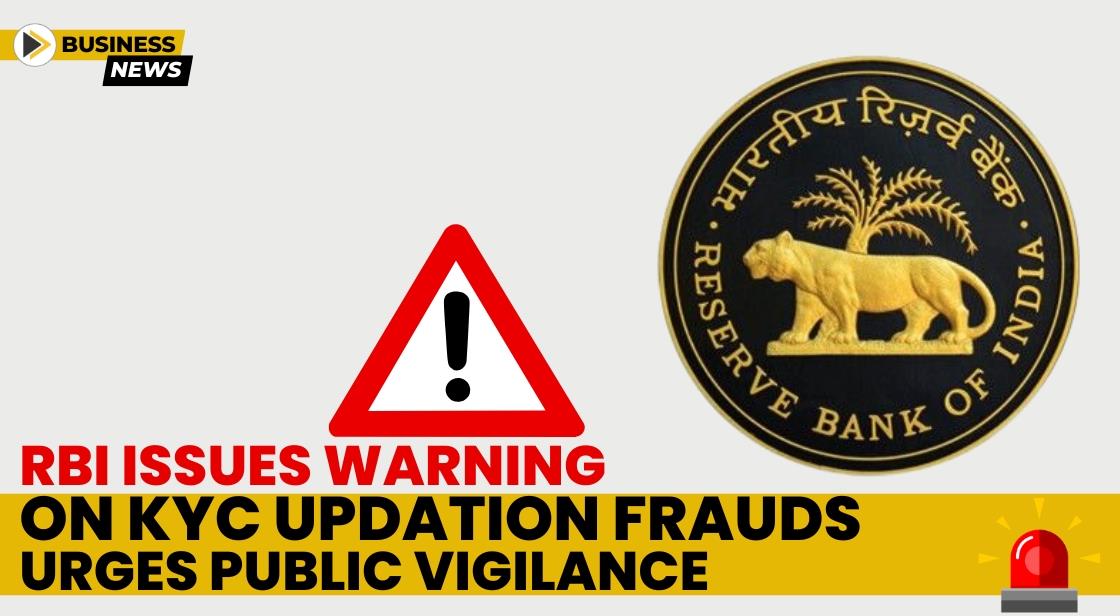RBI Issues Warning on KYC Updation Frauds: Urges Public Vigilance

News Synopsis
Amidst a surge in reported incidents of individuals falling victim to fraudulent activities under the guise of Know Your Customer (KYC) updation, the Reserve Bank of India (RBI) has issued a cautionary advisory. The central bank is urging the public to exercise utmost caution and diligence to thwart potential financial losses resulting from these deceptive practices.
RBI's Cautionary Advisory:
In response to the rising trend of KYC-related frauds, the RBI emphasizes the critical need for individuals to stay vigilant. The modus operandi of such fraudulent schemes typically involves unsuspecting customers receiving unsolicited communications. These communications, which may manifest as phone calls, text messages (SM), or emails, aim to manipulate individuals into divulging sensitive information. This includes personal details, account information, and login credentials.
Fraudulent Tactics and Risks:
The RBI outlines the deceptive tactics employed by fraudsters, highlighting the creation of false urgency and threats of account freezing, blocking, or closure if customers fail to comply with the fraudulent requests. Individuals, when inadvertently sharing essential personal or login details, inadvertently grant fraudsters unauthorized access to their accounts. This unauthorized access opens the door for various forms of fraudulent activities.
Preventive Measures Advised by RBI:
To shield themselves from falling victim to such malicious practices, the RBI advises the public to exercise caution when encountering unsolicited communications. Individuals are particularly warned against installing unauthorized or unverified applications through links provided in these messages.
Immediate Action Against Financial Cyber Frauds:
In the event of falling prey to financial cyber frauds, the RBI instructs members of the public to promptly lodge a complaint through designated channels. The National Cyber Crime Reporting Portal (www.cybercrime.gov.in) is identified as the primary platform for reporting such incidents. Additionally, individuals can seek assistance through the cybercrime helpline (1930).
Key Points:
-
Scammers employ urgency and threats: Fraudsters use phone calls, SMS, and emails to create a sense of urgency, often threatening account freezing or closure if KYC details are not updated immediately.
-
Information targeted: They aim to manipulate individuals into revealing personal data, account details, login credentials, or even installing malicious apps through provided links.
-
Stolen information misused: Once they obtain this sensitive information, scammers can gain unauthorized access to accounts and engage in fraudulent activities.
Protecting Yourself:
-
Remember: The RBI and your bank will never request KYC updates through unsolicited calls, SMS, or emails.
-
Never share: Personal information, account details, login credentials, or install apps from unverified sources.
-
Verify directly: If unsure about a communication regarding KYC, contact your bank directly through official channels.
-
Report immediately: If you suspect a scam, report it to the National Cyber Crime Reporting Portal (www.cybercrime.gov.in) or call the cybercrime helpline (1930).
You May Like









